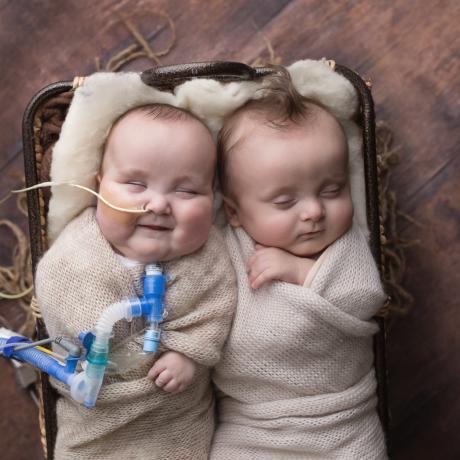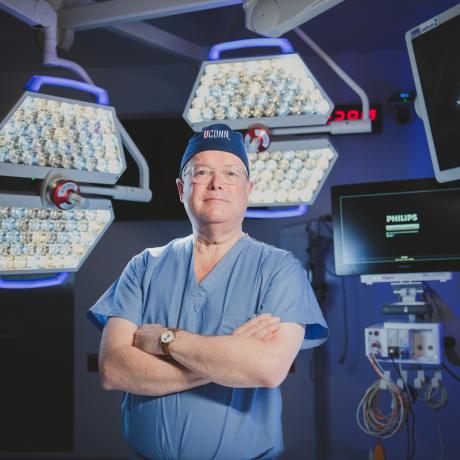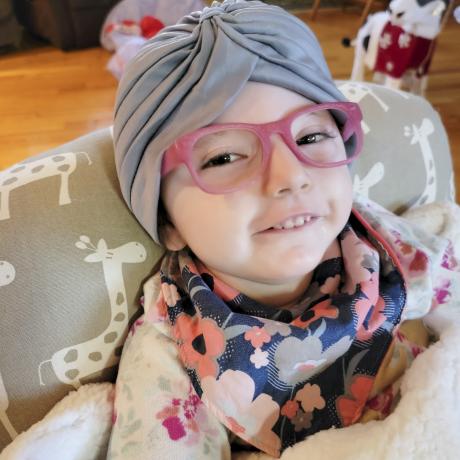After eleven years on the mound practicing his fastball, changeup and slider, Tyler could have never anticipated the curve ball that was thrown his way during his freshman year of high school. The school year had recently started and freshman year can be very stressful; now add COVID-19 into the mix and all of sudden, the typical classroom experience looks very different than it had in the past. As if that weren’t enough, Tyler began experiencing flu-like symptoms, along with lethargy and stomach issues.
An extremely rare kidney diagnosis
Beth Natt, MD, director of pediatric hospitalist medicine at Danbury Hospital and Connecticut Children’s regional clinical director for hospital partnerships, diagnosed Tyler with Henoch-Schonlein purpura, an extremely rare disorder affecting less than 200,000 individuals per year. The disorder causes vascular inflammation in the skin, joints, intestines and kidneys. One of its identifiers is a purplish rash found on the lower legs or buttocks, which Tyler had on his ankle. Jennifer, Tyler’s mom, describes her son “as a totally healthy 14-year-old boy,” and felt overwhelmed when she heard the diagnosis. “I was trying to quickly google the disorder, but I had never heard of it, so I didn’t even know how to spell it.”
Tyler was hooked up to an IV almost immediately and admitted to the hospital. Although he was released after a few days, Jennifer and Bruno, Tyler’s dad, learned Henoch-Schonlein purpura often affects the kidneys. Therefore, baseline kidney testing was scheduled and weekly monitoring would be required.
Unsettling side effects
Tyler’s medical care and monitoring was transferred to Robyn Matloff, MD, MPH, a pediatric nephrologist at Connecticut Children’s, who also serves as the medical director of physician relations for Connecticut Children’s Fairfield County and Eastern New York care locations. Due to extreme inflammation in the kidneys, Tyler began a chemotherapy medicine called Cytoxan, a potent immunosuppressant that can decrease the immune response by blocking the production of DNA in cells. Coupled with steroids, Tyler experienced many unsettling side effects: weight gain, hair loss, acne breakouts and anemia.
Despite extremely low iron levels and barely being able to function some days, Tyler refused to give up the one thing that fueled his passion: baseball. He dragged himself to practice, competing with every ounce of his strength. He endured six months on the chemotherapy drug and he spent another few days in the hospital after another flare up of his kidney disease.
Throughout his medical journey, Tyler maintained all A’s and B’s and was selected as a National Honor Society member. If that wasn’t enough, while receiving treatment for a rare disease, he mentored young children with a local nonprofit, teaching them about empathy, sympathy and other social and emotional behavior. Tyler has already started investigating colleges and has a strong interest in studying pre-med. Who knows? One day Tyler may don a white coat and help a family understand a rare disease, one that is difficult to spell.



